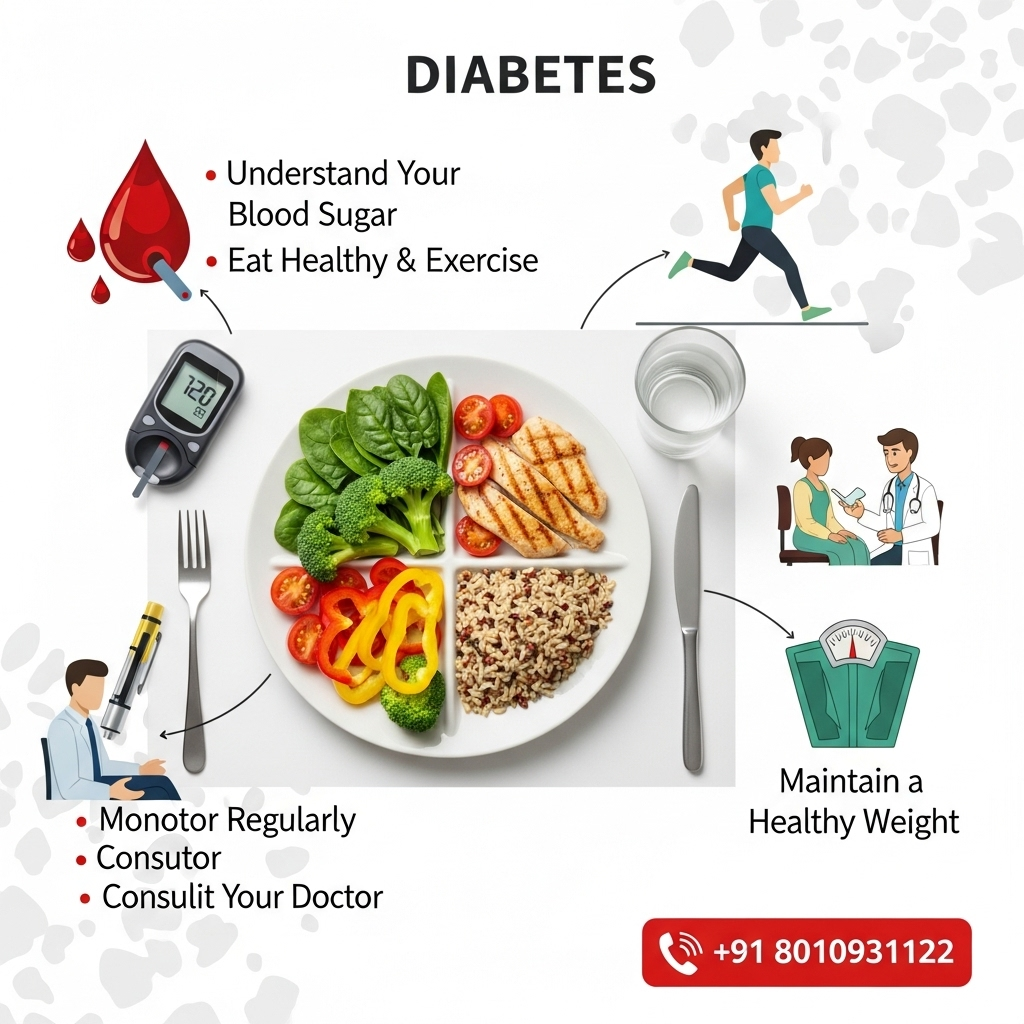Quick Tips to Lower Blood Sugar Effectively Have you ever felt that sudden spike in energy, only to be brought crashing down by fatigue and irritability? If so, you might be familiar with the impacts of fluctuating blood sugar levels. High blood sugar is not just an inconvenience; it can lead to serious health concerns if left unchecked. In this article, we’ll explore several quick and effective methods to lower your blood sugar levels, offering you practical solutions that you can implement immediately to regain control of your health.
Understanding Blood Sugar Levels
What is Blood Sugar?
Blood sugar, or glucose, is a type of sugar that is found in your blood. It serves as the body’s primary energy source, coming from the food you eat. However, maintaining balanced blood sugar levels is crucial for overall health; consistently high levels can lead to diabetes and other health issues.
Why Do Blood Sugar Levels Spike?
Numerous factors can cause your blood sugar levels to rise, including:
- Consuming high-carbohydrate meals
- Stress and anxiety
- Lack of physical activity
- Illness or medications
Being aware of what impacts your blood sugar can help you manage it more effectively.
Quick Ways to Lower Blood Sugar
1- Dietary Adjustments
Your diet is one of the most significant contributors to your blood sugar levels. Making some immediate changes in what and how you eat can yield quick results.
Focus on Low Glycemic Index Foods
The Glycemic Index (GI) measures how quickly food raises blood sugar levels. Foods with a low GI are digested more slowly, resulting in a more gradual increase in blood sugar. Consider incorporating:
- Non-starchy vegetables (spinach, broccoli, cucumbers)
- Whole grains (quinoa, barley)
- Legumes (beans, lentils)
2- Stay Hydrated
Drinking enough water throughout the day can help your kidneys flush out excess sugar through urine. Not only does staying hydrated promote overall health, but it can also aid in controlling blood sugar levels.
“Hydration is vital. When you’re thirsty, your blood sugar may be concentrated more, leading to higher readings. Stay hydrated to dilute the sugars in your bloodstream.”
3- Engage in Physical Activity
Exercise is a powerful tool for controlling blood sugar levels. Engaging in physical activity can help your body use insulin more efficiently.
Quick Workouts to Consider
You don’t need to spend hours in the gym. Here are some quick exercises:
- Walking: A brisk 10-15 minute walk can help lower blood sugar levels.
- Strength Training: Simple exercises like push-ups or squats done for 10 minutes can boost insulin sensitivity.
- Stretching: Even gentle stretching can improve circulation and regulate blood sugar.
4- Reduce Stress
Stress can lead to the release of cortisol and adrenaline, hormones that can raise blood sugar levels. The introduction of stress-reducing techniques can be beneficial.
Stress Management Techniques
Try incorporating these techniques into your daily routine:
- Mindfulness Meditation: Just 5-10 minutes of deep breathing or meditation can be transformative.
- Yoga: This ancient practice blends physical activity with mental relaxation, making it incredibly effective.
- Progressive Muscle Relaxation: Tensing and relaxing different muscle groups can relieve tension and promote relaxation.
5- Monitor Your Blood Sugar Levels
Keeping a close eye on your blood sugar can help you understand which foods and activities impact your levels. Use a glucose monitoring device to track your readings and note how they respond to different meals and exercises.
Conclusion
Managing blood sugar levels doesn’t have to be a daunting task. With a few mindful adjustments to your diet, hydration, exercise routine, and stress management techniques, you can gain control over your health. By staying informed and proactive, you’ll not only lower your blood sugar but also enhance your overall well-being.











Leave a Reply